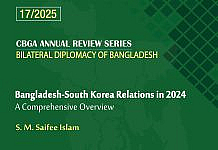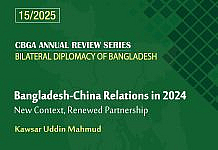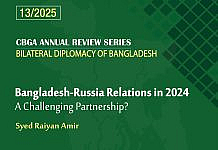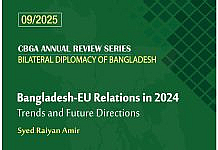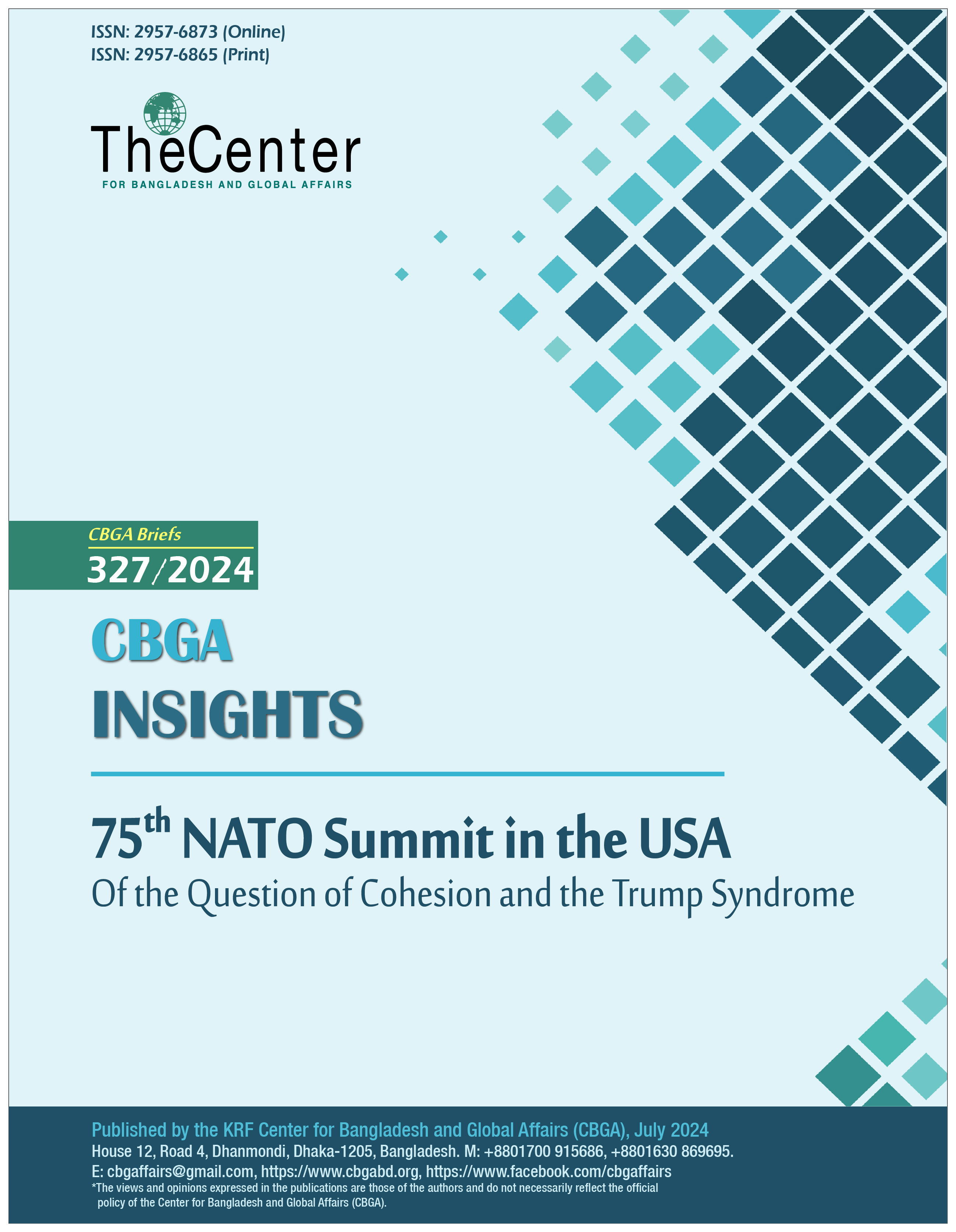
The 75th NATO Summit commenced on July 9, 2024, with a central inquiry: Who provides support to whom? Is President Joe Biden the pivotal force maintaining alliance coherence, or is NATO itself bolstering Biden’s bid for a second term? When President Biden and his advisors orchestrated the 75th anniversary of NATO, inaugurated in Washington, their objective was to project a demeanor of assurance. The message directed at Russian President Vladimir Putin and other potential adversaries was unequivocal: a more formidable and resolute coalition of Western allies had emerged in response to over two years of conflict in Ukraine, demonstrating a steadfast commitment to counteracting acts of aggression.
However, as 38 world leaders began arriving at the event, that confidence appeared to be threatened. Even before the summit formally began, it was overshadowed by uncertainties surrounding Biden’s potential re-election campaign and the looming prospect of former President Donald J. Trump’s return. Trump, who previously labeled NATO as “obsolete” and threatened withdrawal from the alliance, has recently hinted at permitting Russia to act freely against any member country he deems insufficiently supportive. With Trump gaining ground in post-debate polls, key European allies are increasingly apprehensive about the implications of a second Trump presidency for NATO, and whether the alliance could effectively confront Russia without robust American backing.
As the summit commenced on July 9, leaders closely monitored Biden, scrutinizing his every action and parsing his words for indications of his ability to lead for another four years. In an interview with George Stephanopoulos on ABC, Biden welcomed the scrutiny, rhetorically posing the question, of who would maintain NATO’s unity like him. He suggested that observing his performance at the summit and gauging the reactions of allied leaders would serve as a meaningful evaluation of his leadership capabilities.
NATO leaders arriving at the summit acknowledged a surprising challenge: sustaining support for Ukraine while grappling with uncertain confidence in its pivotal member. Preceding the summit, NATO proactively prepared for a potential second Trump presidency by establishing a new NATO command aimed at ensuring consistent arms and military aid to Ukraine, regardless of potential U.S. retrenchment under Trump.
Discussions among NATO leaders underscored that efforts to modernize forces and prepare for potential long-term confrontations with Russia have not been met with proportional increases in military budgets. While over 20 NATO members have achieved the 2% of gross national product spending goal on defense, originally prompted by Trump’s demands and the Ukraine war, Biden’s advisors contend that this benchmark, established over a decade ago amidst terrorism concerns, now inadequately addresses current security imperatives.
Germany, for example, has articulated intentions to enhance its military capabilities as a deterrent against Russia, a commitment made by Chancellor Olaf Scholz in response to the Ukraine war. However, Scholz’s ambitious plans lack a corresponding budgetary allocation, and the challenges of securing public support have been so formidable that German officials hesitate to quantify the financial requirements. Carl Bildt, co-chairman of the European Council on Foreign Relations and former Prime Minister of Sweden, recently argued that European nations would need to double their defense budgets once more to effectively deter the assumed threats posed by Russia. The NATO summit, therefore, transcends mere commemoration of the alliance’s history; it represents a critical juncture that will test its unity and chart its future trajectory. The uncertainty surrounding Biden’s re-election campaign introduces additional complexity to the proceedings. European allies are acutely aware that their collective security architecture heavily relies on unwavering American support. Any indication of wavering commitment from the United States could potentially embolden adversaries and undermine cohesion within the alliance.
Simultaneously, the summit provides President Biden with a platform to reaffirm his leadership and America’s steadfast dedication to NATO. His ability to reassure allies and project strength holds significant weight in securing not only the alliance’s future but also bolstering his own political standing domestically. Biden’s global message is unequivocal: NATO’s unity and determination are stronger than ever, prepared to confront any challenge collectively.
The possibility of a Trump resurgence casts a shadow over these assurances. Trump’s previous criticisms of NATO and his foreign policy approach have left many European leaders unsettled. The prospect of the United States withdrawing from its leadership role in NATO under a second Trump administration is a scenario allies must prepare for. This uncertainty underscores the imperative for NATO to devise strategies that ensure its resilience and effectiveness amidst shifting political dynamics among member states. As the summit unfolds, the interactions and deliberations among leaders will offer insights into NATO’s future course. The alliance’s ability to uphold unity and present a cohesive front will be closely monitored by both allies and adversaries alike. With high stakes involved, the outcomes of this summit will carry significant implications for global security and stability.
Prime Minister Viktor Orban of Hungary recently visited Russia and, during public statements alongside President Putin, refrained from criticizing Russia’s invasion or ongoing attacks on civilians. Instead, he hinted at pursuing peace negotiations aligned with Russia’s terms. The White House expressed concern over the visit. John F. Kirby, a spokesman for the National Security Council, remarked that Orban’s visit did not appear to be functional in terms of advancing efforts in Ukraine, describing it as troubling. To prevent a public rift within NATO on the eve of the summit, NATO Secretary General Jens Stoltenberg refrained from directly criticizing Orban. He acknowledged that NATO allies engaged with Moscow in varying ways and on different levels. However, Stoltenberg suggested that seeking a resolution while Putin advances in Ukraine would not lead to lasting peace. “We all want peace,” Stoltenberg asserted. “It is always possible to end a war by losing a war. But that will not bring peace — that will bring occupation, and occupation is not peace.” This internal challenge underscores the complexities NATO faces in maintaining unity, particularly when member states pursue distinct diplomatic strategies.
The Americans will closely observe the proceedings of the NATO summit, keenly evaluating President Biden’s leadership which will potentially have implications for his second term in office. For many Americans, the summit represents a crucial test of Biden’s ability to uphold U.S. commitments to NATO and ensure collective defense among Western allies. His capacity to project strength, foster unity within the alliance, and effectively address geopolitical tensions will directly impact perceptions of his leadership and competence on the global stage. Moreover, any indications of wavering support for NATO or discord among member states could influence public confidence in Biden’s foreign policy stewardship. Conversely, successful outcomes, such as strengthened alliances, enhanced security measures, and cohesive diplomatic strategies, could bolster Biden’s credibility and bolster his chances for a successful second term. Ultimately, as the NATO summit unfolds, its outcomes will resonate deeply with the American electorate, shaping perceptions of Biden’s leadership qualities, foreign policy effectiveness, and commitment to international security.
Therefore, the 75th NATO Summit stands as a pivotal moment for the alliance and for President Biden personally. It serves as a critical test of NATO’s resilience and unity amidst significant internal and external pressures. The deliberations and decisions taken at this summit will profoundly influence the trajectory of transatlantic relations and the broader global security landscape. The summit poses fundamental questions: Can the US effectively reaffirm its leadership and rally NATO’s collective commitment to defense and deterrence in the face of emerging threats? Alternatively, will the alliance need to brace itself for a period of uncertainty should former President Trump return to power? These uncertainties underscore the gravity of the decisions being made, with implications that extend far beyond NATO’s immediate concerns. One thing is certain—the outcomes of this summit will resonate globally. The world is keenly observing how NATO navigates these challenges and whether it can maintain solidarity and purpose in an increasingly complex geopolitical environment. The stakes are higher than ever, underscoring the importance of this moment in shaping the future course of international security and cooperation.
– Syed Raiyan Amir is a Senior Research Associate at the KRF Center for Bangladesh and Global Affairs (CBGA).



